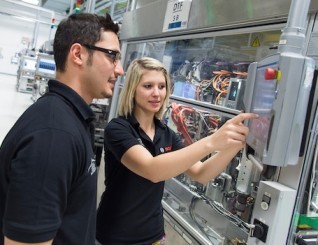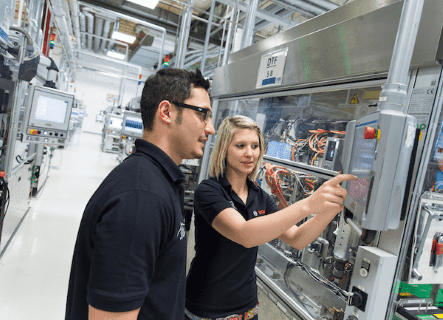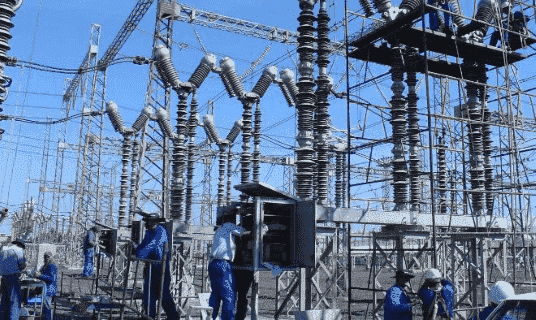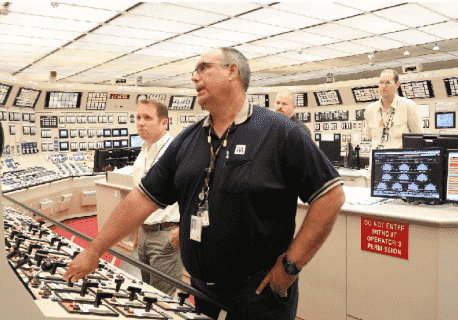COURSE OVERVIEW
ELECTRICAL & POWER ENGINEERING

OVERVIEW
| COURSE TITLE | : | EE1002 : Classification of Locations for Electrical Installations at Petroleum Facilities (API 500/ API 505/ API RP 14FZ) |
| COURSE DATE | : | Apr 14 - Apr 18 2024 |
| DURATION | : | 5 Days |
| INSTRUCTOR | : | Mr. Grant Stead Days |
| VENUE | : | Dubai, UAE |
| COURSE FEE | : | $ 5500 |
| Request For Course | ||
OTHER SCHEDULED DATES
| Date | : | Jul 01 - Jul 05 (5 Days) | Location | : | Abu Dhabi, UAE | Classroom Fee (US$) | : | $ 5500 | Course Info |
| Date | : | Oct 06 - Oct 10 (5 Days) | Location | : | Al Khobar, KSA | Classroom Fee (US$) | : | $ 5500 | Course Info |
Course Description
This practical and highly-interactive course includes real-life case studies and exercises where participants will be engaged in a series of interactive small groups and class workshops. This course is designed to provide participants with a detailed and up-to-date overview of classification of location for electrical installations at petroleum facilities in accordance with API 500, 505 & RP14FZ. It covers the conditions for fire and explosion in petroleum facilities; the law and regulators, recommended practices and standards; the hazardous (classified) locations API 500/505 including hazardous area classification; the installation, maintenance, and operation of electrical equipment; the API RP 500, API RP 14F, API 505 and API 14FZ; the area classifications for API hazardous classified and unclassified; the classification based on API RP; the API RP 505 and 500 ?preferred? symbols for classified locations; and the atmospheric mixtures of explosive gas and air. During this interactive course, participants will learn the API RP 14F installation 6.8 conduit and cable seals and sealing methods; the grounding, electrical motors and portable equipment; the API14 RP FZ design, installation and maintenance of electrical systems; the API RP 14FZ listings, markings and documentation; the equipment selection division 1, oil immersion (type ?o?), increased safety (type ?e?) equipment, powder filling equipment and encapsulation (type ?m?) equipment; and the API RP 14FZ electrical distribution systems
TRAINING METHODOLOGY
This interactive training course includes the following training methodologies as a percentage of the total tuition hours
LecturesWorkshops & Work Presentations
Case Studies & Practical Exercises
Videos, Software & Simulators
In an unlikely event, the course instructor may modify the above training methodology before or during the course for technical reasons.
VIRTUAL TRAINING (IF APPLICABLE)
If this course is delivered online as a Virtual Training, the following limitations will be applicable
| Certificates | : | Only soft copy certificates will be issued to participants through Haward’s Portal. This includes Wallet Card Certificates if applicable |
| Training Materials | : | Only soft copy Training Materials (PDF format) will be issued to participant through the Virtual Training Platform |
| Training Methodology | : | 80% of the program will be theory and 20% will be practical sessions, exercises, case studies, simulators or videos |
| Training Program | : | The training will be for 4 hours per day starting at 09:30 and ending at 13:30 |
| H-STK Smart Training Kit | : | Not Applicable |
| Hands-on Practical Workshops | : | Not Applicable |
| Site Visit | : | Not Applicable |
| Simulators | : | Only software simulators will be used in the virtual courses. Hardware simulators are not applicable and will not be used in Virtual Training |
RELATED COURSES

EE0050S3 : High and Medium Voltage Substation Design, Testing and Maintenance
- Date : May 12 -May 16 / 3 Days
- Location : Doha, Qatar
- Course Details Register

EE0081 : Power System Planning & Economics
- Date : May 20 -May 23 / 3 Days
- Location : Al Khobar, KSA
- Course Details Register

EE0050 : HV/MV Substation Design, Installation, Commissioning, Testing, Operation, Control & Maintenance
- Date : May 12 -May 16 / 3 Days
- Location : Istanbul, Turkey
- Course Details Register

EE0120 : Power Generation: GAS TURBINES, STEAM POWER PLANTS, CO-GENERATION AND COMBINED CYCLE PLANTS: Selection, Applications, Operation, Maintenance and Economics
- Date : May 13 -May 16 / 3 Days
- Location : Abu Dhabi, UAE
- Course Details Register
